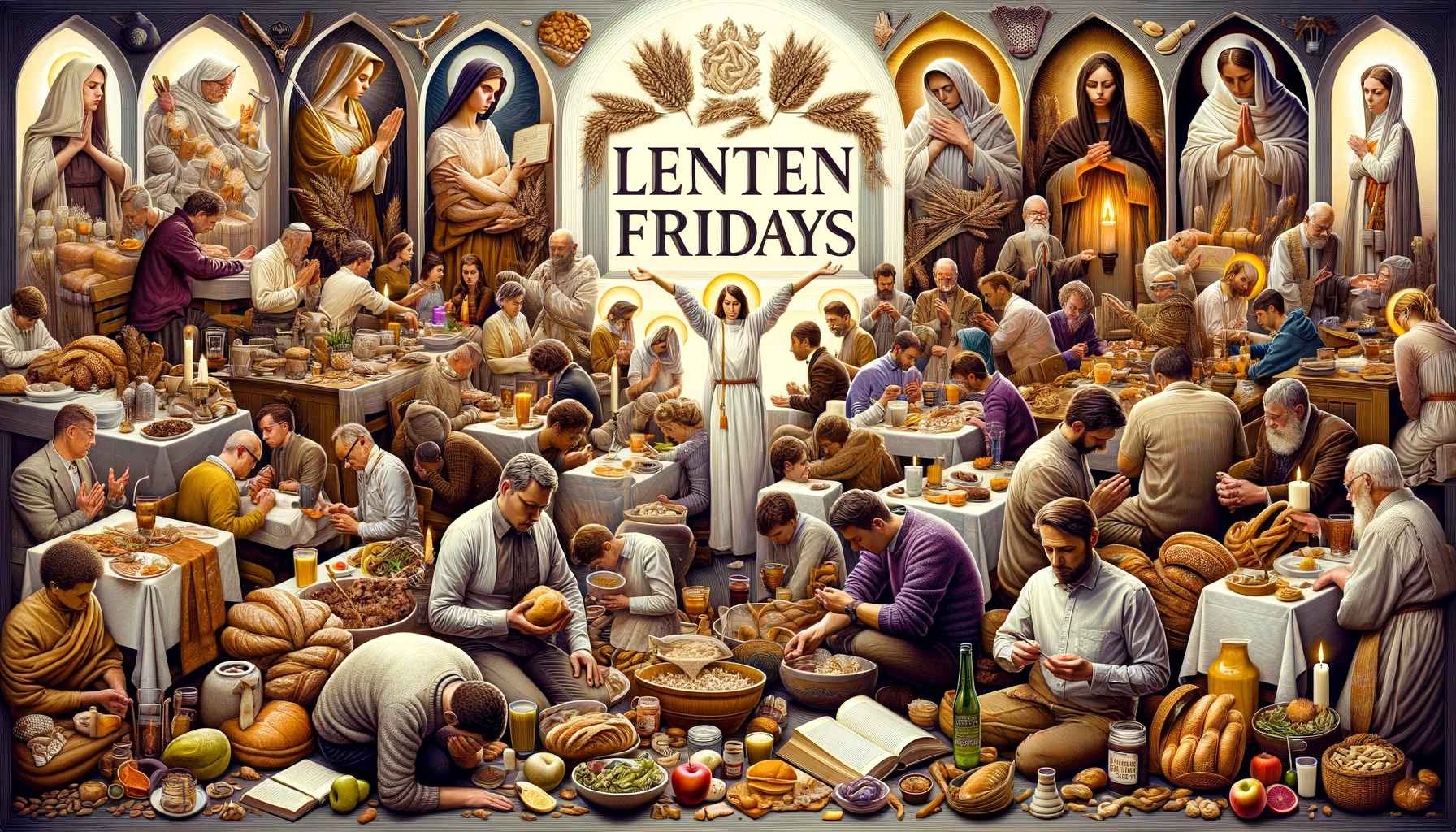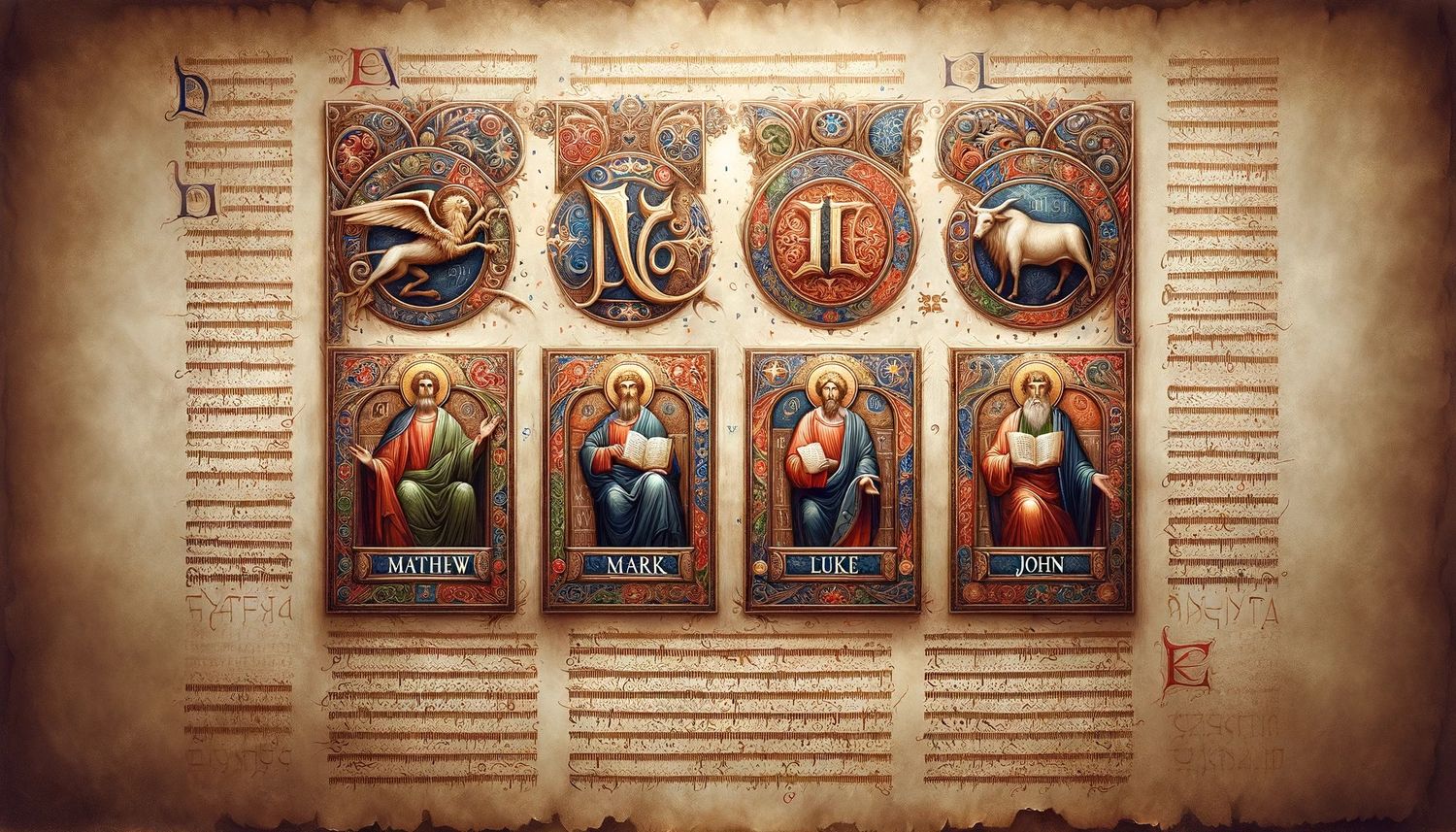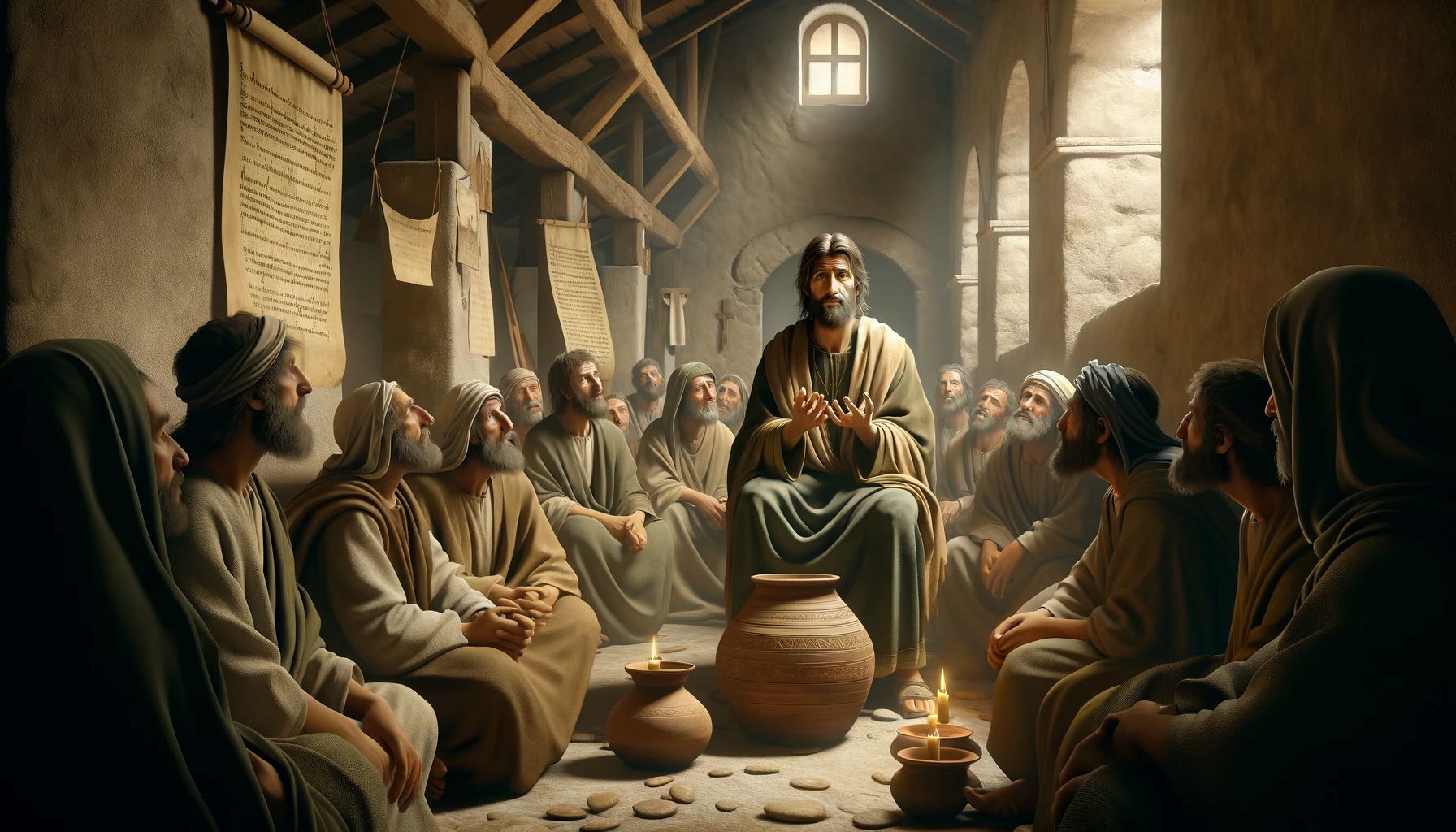Home>Special Themes>How Many Fridays Are In Lent?


Special Themes
How Many Fridays Are In Lent?
Published: February 27, 2024
Peter Smith, Editorial Director at Christian.net, combines deep insights into faith, politics, and culture to lead content creation that resonates widely. Awarded for his contributions to religious discourse, he previously headed a major organization for religious communicators, enhancing dialogue on faith's societal impacts.
Discover the significance of special themes during Lent and learn how many Fridays are observed in this solemn season. Explore the traditions and customs associated with Lenten observance.
(Many of the links in this article redirect to a specific reviewed product. Your purchase of these products through affiliate links helps to generate commission for Christian.net, at no extra cost. Learn more)
Table of Contents
The Significance of Lent in Christianity
Lent holds a significant place in the Christian calendar, serving as a period of reflection, repentance, and preparation for the celebration of Easter. It spans approximately 40 days, symbolizing the time Jesus spent fasting in the wilderness. The observance of Lent is a time for Christians to focus on spiritual discipline, self-examination, and drawing closer to God through prayer and fasting. It is a season of spiritual renewal and growth, emphasizing the themes of sacrifice, self-denial, and the journey towards redemption and resurrection.
-
Spiritual Preparation: Lent provides an opportunity for believers to engage in introspection and spiritual preparation. It encourages individuals to examine their lives, seek forgiveness for wrongdoings, and realign their focus on living in accordance with the teachings of Jesus Christ.
-
Symbolism of 40 Days: The duration of Lent, approximately 40 days, mirrors the biblical accounts of significant periods of testing and preparation, such as the 40 days and nights Jesus spent in the wilderness. This symbolism underscores the importance of self-discipline, perseverance, and spiritual growth during this season.
-
Preparation for Easter: Lent culminates in the celebration of Easter, the central event in the Christian faith. By observing Lent, believers prepare their hearts and minds to fully embrace the significance of Christ's resurrection, recognizing it as the cornerstone of their faith and salvation.
-
Emphasis on Sacrifice and Renewal: Through practices such as fasting, prayer, and acts of service, Lent emphasizes the principles of sacrifice and renewal. It encourages believers to detach from worldly distractions, refocus on their relationship with God, and seek spiritual rejuvenation.
-
Community and Fellowship: Lent also fosters a sense of community and fellowship among believers. Many churches and Christian communities engage in collective observances, such as special worship services, study groups, and charitable initiatives, fostering a shared journey of faith and devotion.
In essence, Lent holds deep significance in Christianity, serving as a time for believers to engage in spiritual reflection, prepare for the celebration of Easter, and renew their commitment to living out the teachings of Jesus Christ.
Read more: How Many Candles For Lent
Understanding the Duration of Lent
-
Forty Days of Preparation: Lent spans approximately 40 days, representing the period of Jesus' fasting and temptation in the wilderness. This duration holds symbolic significance, as it mirrors the biblical accounts of other 40-day periods, such as the Great Flood in the story of Noah and the Israelites' journey through the wilderness. The number 40 often signifies a time of testing, purification, and preparation in the Bible, emphasizing the spiritual significance of the Lenten season.
-
Ash Wednesday to Easter Sunday: The duration of Lent begins on Ash Wednesday and concludes on Easter Sunday. Ash Wednesday marks the start of the 40-day period, excluding Sundays, leading up to Easter. This observance aligns with the biblical narrative of Jesus' resurrection, as Easter Sunday commemorates the triumph of Christ over death, signifying the culmination of the Lenten journey.
-
Exclusion of Sundays: It is important to note that Sundays are not counted as part of the 40 days of Lent. This practice stems from the early Christian tradition, where Sundays were considered a day of celebration and rejoicing in the resurrection of Jesus. As a result, the six Sundays within the Lenten period are not included in the 40-day count, allowing for moments of spiritual refreshment and joy amidst the solemnity of the season.
-
Flexibility in Observance: While the traditional Lenten period lasts for 40 days, some Christian denominations may observe variations in the duration of Lent. For instance, Eastern Orthodox churches follow a Lenten period that spans 40 days, beginning on Clean Monday and concluding on the Friday before Palm Sunday. Understanding these variations highlights the diverse practices and interpretations of Lent within the broader Christian community.
-
Personal and Communal Reflection: The duration of Lent provides individuals and communities with an extended period for deep introspection, spiritual growth, and communal solidarity. It offers a structured timeframe for engaging in practices such as prayer, fasting, almsgiving, and acts of service, fostering a collective journey of faith and renewal leading up to the celebration of Easter.
In essence, understanding the duration of Lent encompasses its symbolic significance, its alignment with key events in the Christian calendar, the exclusion of Sundays, and the variations in observance across different Christian traditions. This understanding enriches the experience of Lent as a time of spiritual preparation, self-examination, and anticipation of the Easter celebration.
The Role of Fridays in Lent
-
Commemorating Christ's Sacrifice: Fridays hold a special significance in the observance of Lent, as they symbolize the day of Christ's crucifixion. This connection to the crucifixion underscores the solemn and penitential nature of Fridays during Lent. It serves as a reminder of the ultimate sacrifice made by Jesus for the redemption of humanity, prompting believers to reflect on the profound meaning of Christ's death on the cross.
-
Abstinence and Fasting: In many Christian traditions, Fridays during Lent are designated as days of abstinence from meat and, in some cases, fasting. This practice aligns with the call for self-discipline and self-denial during the Lenten season. By abstaining from certain foods, particularly meat, believers express their willingness to make sacrifices and embrace a spirit of penance as they journey towards Easter.
-
Spiritual Discipline and Reflection: The observance of Fridays in Lent encourages believers to engage in heightened spiritual discipline and reflection. It prompts individuals to contemplate the significance of Christ's sacrifice, examine their own lives in light of this sacrifice, and seek spiritual renewal through acts of prayer, repentance, and self-examination. Fridays serve as a focal point for deepening one's commitment to the Lenten disciplines and drawing closer to the core tenets of the Christian faith.
-
Participation in Communal Worship: Many Christian communities place emphasis on communal worship and fellowship on Fridays during Lent. Special services, such as Stations of the Cross or liturgical gatherings, provide opportunities for believers to come together in prayer and contemplation, collectively meditating on the events leading up to Christ's crucifixion. This communal aspect reinforces the shared journey of faith and underscores the significance of Fridays as integral moments within the Lenten observance.
-
Acts of Charity and Almsgiving: Fridays in Lent also present occasions for acts of charity and almsgiving. Believers are encouraged to extend compassion and support to those in need, reflecting the spirit of Christ's selfless love and sacrifice. Engaging in charitable deeds on Fridays serves as a practical expression of the Lenten values of generosity, empathy, and service to others, enriching the spiritual significance of the day within the broader context of the Lenten season.
In essence, the role of Fridays in Lent encompasses their symbolic connection to Christ's sacrifice, the practice of abstinence and fasting, the emphasis on spiritual discipline and reflection, participation in communal worship, and the opportunity for acts of charity and almsgiving. These elements collectively contribute to the profound spiritual journey experienced by believers as they observe Fridays within the Lenten season.
Observing Lenten Fridays in Different Christian Traditions
-
Roman Catholic Tradition: In the Roman Catholic tradition, Fridays during Lent hold a central place in the observance of the season. The practice of abstaining from meat on Fridays, including Ash Wednesday, is a longstanding tradition that underscores the spirit of penance and self-denial. Additionally, Catholics are called to observe fasting on Ash Wednesday and Good Friday, further emphasizing the solemnity and sacrificial nature of these days. The faithful are encouraged to participate in the Stations of the Cross, a devotional practice that commemorates the events leading to Christ's crucifixion, often held on Fridays during Lent. This tradition reflects a deep commitment to spiritual discipline, reflection on Christ's sacrifice, and communal worship.
-
Eastern Orthodox Tradition: Within the Eastern Orthodox tradition, the observance of Lenten Fridays follows a distinct pattern. The Lenten period, known as Great Lent, spans 40 days and includes a heightened focus on prayer, fasting, and almsgiving. Fridays are marked by the abstinence from meat and dairy products, as well as the commemoration of the crucifixion through special liturgical services. The faithful engage in the veneration of the Cross, emphasizing the significance of Christ's sacrifice, and participate in the Liturgy of the Presanctified Gifts, a unique service held on Wednesdays and Fridays during Great Lent. These practices reflect the emphasis on spiritual discipline, reverence for Christ's redemptive work, and the communal expression of faith within the Eastern Orthodox tradition.
-
Protestant and Anglican Traditions: In Protestant and Anglican traditions, the observance of Lenten Fridays varies across denominations and congregations. While some may maintain the practice of abstaining from meat or engaging in fasting on Fridays, others may place greater emphasis on spiritual reflection, prayer, and acts of charity. The Fridays of Lent often feature special worship services, such as contemplative gatherings, meditative reflections, or communal meals focused on fellowship and spiritual nourishment. The emphasis on personal and communal devotion, alongside a diversity of practices, reflects the flexibility and adaptability of Lenten observance within Protestant and Anglican contexts.
-
Orthodox Christian Tradition: Orthodox Christian communities, including the Oriental Orthodox churches, observe Lenten Fridays with a deep sense of reverence and devotion. The faithful adhere to the practice of abstaining from meat and dairy products on Fridays, as well as engaging in additional fasting and prayer disciplines. Special services, such as the Akathist Hymn and the reading of the Book of Psalms, are often incorporated into the Friday observances, providing opportunities for spiritual enrichment and communal worship. The Lenten journey within Orthodox traditions emphasizes the transformative power of prayer, self-discipline, and the commemoration of Christ's redemptive sacrifice, shaping the spiritual experience of believers during this sacred season.
-
Other Christian Traditions: Beyond the aforementioned traditions, various Christian denominations and communities observe Lenten Fridays in diverse ways that reflect their unique theological perspectives and cultural contexts. Some may emphasize acts of service and social justice on Fridays, aligning with the principles of compassion and solidarity. Others may prioritize the study of scripture, engaging in Bible studies or theological discussions focused on the themes of Lent. The observance of Lenten Fridays across different Christian traditions underscores the rich tapestry of spiritual practices, expressions of faith, and the shared commitment to honoring the significance of Christ's sacrifice and resurrection.
In essence, the observance of Lenten Fridays varies across different Christian traditions, encompassing practices of abstinence, fasting, communal worship, and spiritual disciplines that reflect the diverse expressions of faith and devotion within the broader context of the Lenten season.
Practical Considerations for Lenten Fridays
-
Meal Planning: Given the practice of abstinence from meat on Lenten Fridays, individuals and families often engage in intentional meal planning to accommodate this dietary restriction. This may involve exploring vegetarian or seafood-based recipes, incorporating seasonal produce, and embracing culinary creativity to prepare nourishing and satisfying meals that align with the Lenten observance.
-
Community Support: Lenten Fridays present opportunities for fostering a sense of community support and solidarity. Many churches and Christian communities organize communal meals or potluck gatherings on Fridays, allowing individuals to come together, share in fellowship, and partake in meatless dishes prepared by fellow members. This communal aspect enriches the experience of Lent, promoting a spirit of togetherness and mutual encouragement.
-
Educational Resources: Churches and religious organizations often provide educational resources and materials to support individuals in deepening their understanding of the Lenten season. This may include study guides, devotional readings, and online resources that offer insights into the spiritual significance of Lent, guidance on fasting and abstinence, and reflections on the themes of repentance and renewal.
-
Prayer and Reflection: Engaging in intentional times of prayer and reflection on Lenten Fridays is a key practical consideration. Individuals may set aside moments for personal prayer, meditation, or participation in communal prayer gatherings, allowing for spiritual contemplation and connection with the core tenets of the Lenten journey. This practice fosters a deeper sense of spiritual awareness and renewal.
-
Charitable Initiatives: Many Christians use Lenten Fridays as an opportunity to engage in acts of charity and almsgiving. This may involve volunteering at local shelters, supporting food drives, or contributing to charitable organizations that serve vulnerable populations. By extending acts of kindness and generosity, individuals embody the spirit of compassion and service central to the Lenten season.
-
Cultural Traditions: Lenten Fridays often intersect with cultural traditions and culinary customs specific to certain regions or communities. Embracing and honoring these traditions can add a meaningful dimension to the observance of Lent, fostering a sense of cultural heritage and shared identity within the context of faith and spirituality.
-
Mindful Consumption: Beyond dietary considerations, Lenten Fridays prompt individuals to adopt a mindset of mindful consumption. This may involve reflecting on the ethical and environmental implications of food choices, supporting sustainable practices, and cultivating a deeper appreciation for the nourishment provided by plant-based diets, in alignment with the principles of stewardship and responsible living.
In essence, practical considerations for Lenten Fridays encompass meal planning, community support, educational resources, prayer and reflection, charitable initiatives, cultural traditions, and mindful consumption. These practical aspects contribute to a holistic and enriching experience of observing Lenten Fridays within the Christian faith.















